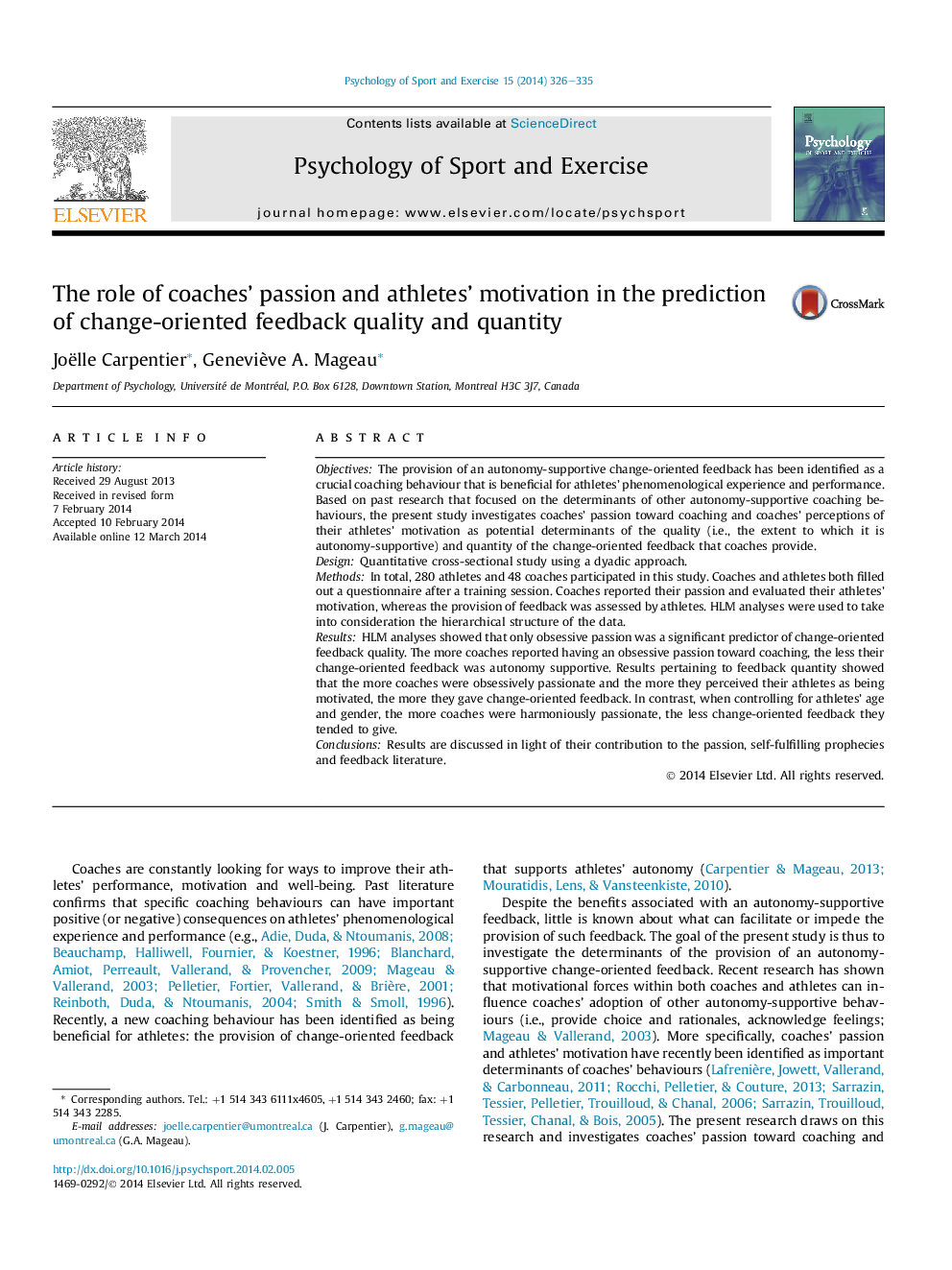| کد مقاله | کد نشریه | سال انتشار | مقاله انگلیسی | نسخه تمام متن |
|---|---|---|---|---|
| 894389 | 1472116 | 2014 | 10 صفحه PDF | دانلود رایگان |
• Coaches with an obsessive passion give more change-oriented feedback.
• Athletes perceived as more motivated receive more change-oriented feedback.
• Coaches with an obsessive passion give a change-oriented feedback of lesser quality.
• When controlling for age/gender, harmoniously-passionate coaches give less feedback.
ObjectivesThe provision of an autonomy-supportive change-oriented feedback has been identified as a crucial coaching behaviour that is beneficial for athletes' phenomenological experience and performance. Based on past research that focused on the determinants of other autonomy-supportive coaching behaviours, the present study investigates coaches' passion toward coaching and coaches' perceptions of their athletes' motivation as potential determinants of the quality (i.e., the extent to which it is autonomy-supportive) and quantity of the change-oriented feedback that coaches provide.DesignQuantitative cross-sectional study using a dyadic approach.MethodsIn total, 280 athletes and 48 coaches participated in this study. Coaches and athletes both filled out a questionnaire after a training session. Coaches reported their passion and evaluated their athletes' motivation, whereas the provision of feedback was assessed by athletes. HLM analyses were used to take into consideration the hierarchical structure of the data.ResultsHLM analyses showed that only obsessive passion was a significant predictor of change-oriented feedback quality. The more coaches reported having an obsessive passion toward coaching, the less their change-oriented feedback was autonomy supportive. Results pertaining to feedback quantity showed that the more coaches were obsessively passionate and the more they perceived their athletes as being motivated, the more they gave change-oriented feedback. In contrast, when controlling for athletes' age and gender, the more coaches were harmoniously passionate, the less change-oriented feedback they tended to give.ConclusionsResults are discussed in light of their contribution to the passion, self-fulfilling prophecies and feedback literature.
Journal: Psychology of Sport and Exercise - Volume 15, Issue 4, July 2014, Pages 326–335
